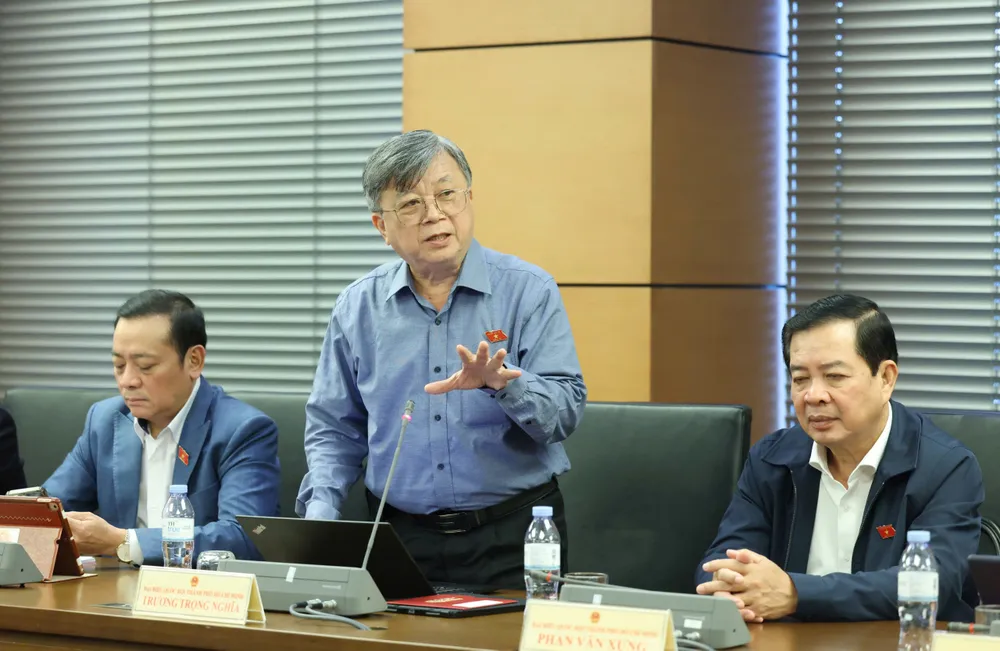
More reasonable regulations on asset declaration
Discussing at the Ho Chi Minh City delegation on the Law amending and supplementing a number of articles of the Law on Anti-Corruption, Deputy Truong Trong Nghia raised the issue that in order to attract high-quality human resources to lead state-owned enterprises (SOEs) through examination mechanisms, hiring directors... it is necessary to have reasonable regulations on asset declaration.
According to Deputy Truong Trong Nghia, for shareholder representatives recruited into state-owned enterprises or those hired, they should not be forced to declare their assets, although they are still subject to the law.
“Income changes during work must be declared, but if they are required to declare all their assets in advance, they will be very reluctant because it affects their privacy. On the other hand, the Enterprise Law has also designed provisions to prevent this,” said Deputy Truong Trong Nghia.
Sharing the same view, Deputy Tran Cong Phan (HCMC) added that the bill to expand the regulation of enterprises with State capital (less than 50%) is correct. However, for foreign directors, it is not necessary to declare all assets from the beginning. "For Party inspection agencies, it is also possible to include this law, or it can be included in the Party Charter," Deputy Tran Cong Phan commented.
From the perspective of protecting the legitimate rights of subjects subject to asset declaration, Deputy To Thi Bich Chau (HCMC) proposed clarifying the content, scope and roadmap of digital transformation in this field. "Digital transformation must be done, but the information here needs to be regulated in terms of confidentiality, in order to avoid increasing the effectiveness of detecting, controlling and preventing corruption, while ensuring confidentiality when necessary and the personal rights of citizens," commented Deputy To Thi Bich Chau.
“Unsafe digital transformation can affect a political career or someone's life"
Delegate To Thi Bich Chau (HCMC)

Delegate Nguyen Van Huy (Hung Yen) said that regarding the proposal to increase the income asset declaration level from 50 million VND to 150 million VND for precious metals, gemstones, money, valuable papers, etc., the drafting agency needs to conduct further research and assign the Government to specify in detail the method and time for valuation of difficult-to-valuate assets.
“If the regulations do not have detailed instructions, the implementation process will be difficult and problematic, such as lack of consistency between localities; different valuation times can cause price differences and lack of accuracy,” said Deputy Nguyen Van Huy, who proposed to study the phrase “digital assets” to ensure all forms of assets, because digital assets are also a new type of asset with many values.

Regarding the issue of asset declaration, Deputy Phan Xuan Dung (Khanh Hoa) cited that in some countries, salaries and incomes are very different. “So now we require asset declaration, how do we declare it? For example, there are people whose salary is only about 16 million VND/month, but when they do extra work, their income is up to 50-60 million VND/month,” Deputy Phan Xuan Dung raised the issue. Therefore, this issue of asset declaration needs to refer to the experience of other countries.
According to Deputy Phan Xuan Dung, along with anti-corruption, it is necessary to strengthen anti-waste, and there must be strong solutions. For example, currently in the process of restructuring, there is a lot of surplus material assets and headquarters, so there must be solutions to use them effectively and avoid waste.
Investigate assets to prevent dissipation
According to regulations, every year, people who are required to declare must declare and declare additional assets. If additional assets arise and increase by 1 billion VND, they must be verified. However, Delegate Hoang Van Cuong (Hanoi) asked: Is it necessary to verify every time it increases by 1 billion VND? According to the Delegate, the most important thing is how to declare, whether the assets that arise are clearly explained or not. "If they have declared, have evidence, and full proof, then there is no need to verify. People clearly state that selling this asset, selling those things, then why do they need to verify anymore. Therefore, verification is only done when the declaration is dishonest or there are signs of fraud, and there are accusations," Delegate Hoang Van Cuong asked.
In addition, Deputy Hoang Van Cuong suggested that every year some people should be verified. In some localities, there are places where the verification is based on "luck". So, is it clear that fighting corruption is a matter of luck? Therefore, the Deputy suggested that every year we should verify and should come up with a number of 20% verification. And every 5 years, everyone should be verified. "Verification is very normal. Verification is not a bad thing. Except in cases where there are signs of unusual investigation. You have just verified, but if there are signs of unusualness, verify again 2 or 3 times", said Deputy Hoang Van Cuong.
Regarding the recovery of corrupt assets, Deputy Hoang Van Cuong said that corrupt people will find ways to disperse and disperse assets to their children, siblings, family, and relatives. "Therefore, the draft must include a provision that in cases where people have been prosecuted for corruption and lost assets, during the process of recovering assets, it is necessary to investigate not only the assets of the individual but also the assets of related people to prevent dispersion. This will ensure a stronger deterrent effect in the recovery of corrupt assets," Deputy Hoang Van Cuong proposed.
Giving comments on the draft Law on Civil Judgment Enforcement (amended) on the morning of November 5, Deputy Nguyen Tam Hung (HCMC), member of the National Assembly's Committee on National Defense, Security and Foreign Affairs, was interested in the organizational model of civil judgment enforcement agencies.

Delegate Nguyen Tam Hung
The delegate analyzed that the current organizational model only has the Civil Judgment Enforcement Management Department at the Central level, and the provincial civil judgment enforcement agency directly "holds" all the authority to organize enforcement. The regional civil judgment enforcement office is only a unit under the provincial level, without legal status, without a seal, account, and without the authority to issue decisions on civil judgment enforcement, which is a major shortcoming. This design is not compatible with the new structure of the people's court and the people's procuracy according to the regional model, and at the same time creates many bottlenecks in supervision, coordination, and organization of enforcement in practice.
According to the delegate, with the current model (centralizing authority at the provincial civil judgment enforcement office, while the regional civil judgment enforcement office is only a specialized office under it), the enforcement team is facing many difficulties. They often have to struggle with the volume of documents and the "up-down" process to request the signing of decisions; there has been a situation of slow signing, and even the issuance of decisions to enforce judgments will be missed.
Therefore, to ensure the stability of the organizational apparatus and the strictness and timeliness in the enforcement of court judgments and decisions that have come into legal effect, it is necessary to carefully consider the organizational model of the civil judgment enforcement agency in the direction of 3 levels (Central - Provincial - Regional), in order to create the most favorable conditions for enforcement officers and the entire judgment enforcement system to perform their duties in a timely, strict and lawful manner.
The delegate said that redesigning the model into 3 levels, with the regional civil judgment enforcement agency as the legal entity with the authority to make decisions and organize enforcement, will close the cycle of "regional inspection - regional trial - regional enforcement", remove current bottlenecks, reduce transaction time and costs, and ensure that legally effective judgments and decisions are enforced substantially and on time.
Source: https://www.sggp.org.vn/bao-ve-quyen-chinh-dang-cho-cac-doi-tuong-thuoc-dien-ke-khai-tai-san-post821787.html






![[Photo] Opening of the 14th Conference of the 13th Party Central Committee](https://vphoto.vietnam.vn/thumb/1200x675/vietnam/resource/IMAGE/2025/11/05/1762310995216_a5-bnd-5742-5255-jpg.webp)

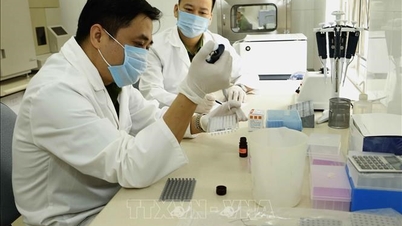

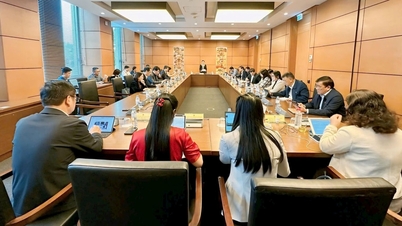






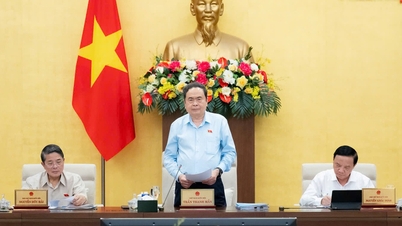



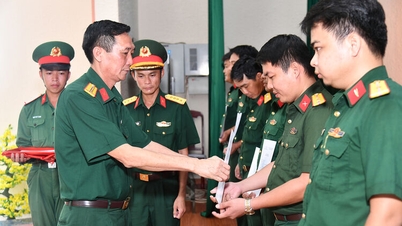




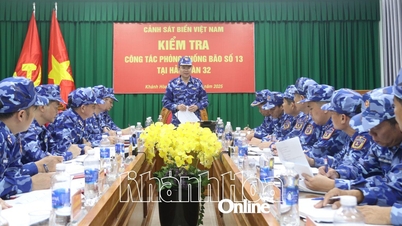
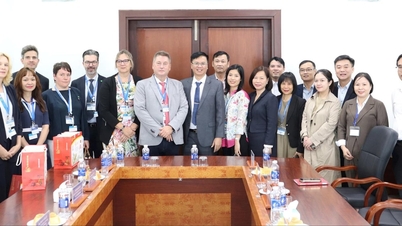





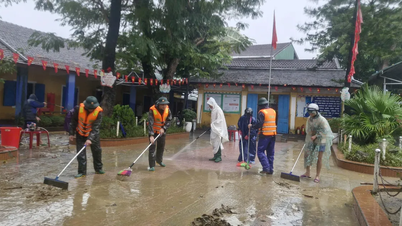

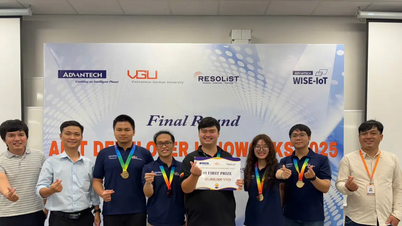


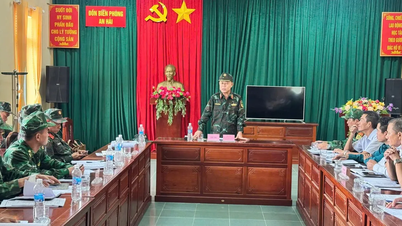
![[Photo] Panorama of the Patriotic Emulation Congress of Nhan Dan Newspaper for the period 2025-2030](https://vphoto.vietnam.vn/thumb/1200x675/vietnam/resource/IMAGE/2025/11/04/1762252775462_ndo_br_dhthiduayeuncbaond-6125-jpg.webp)





































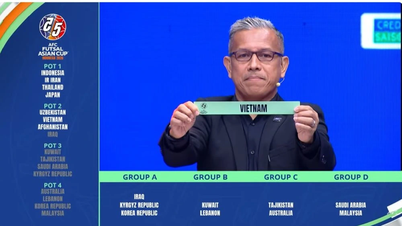








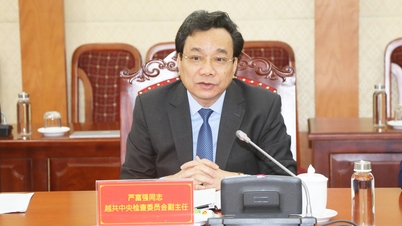

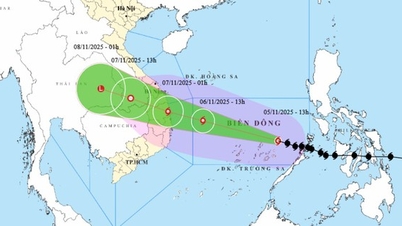




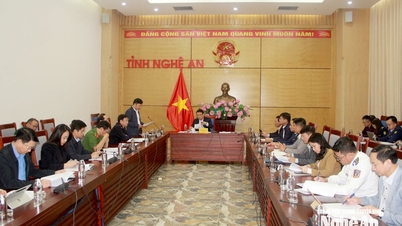

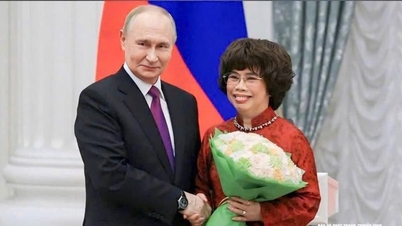
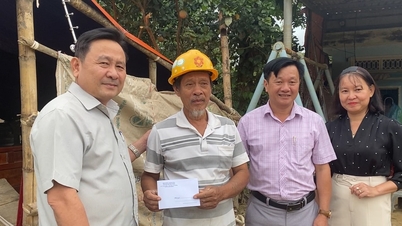
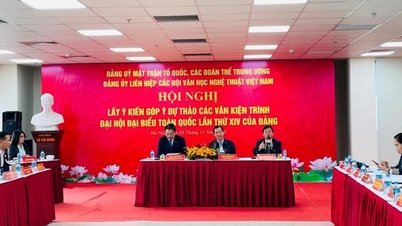
















Comment (0)